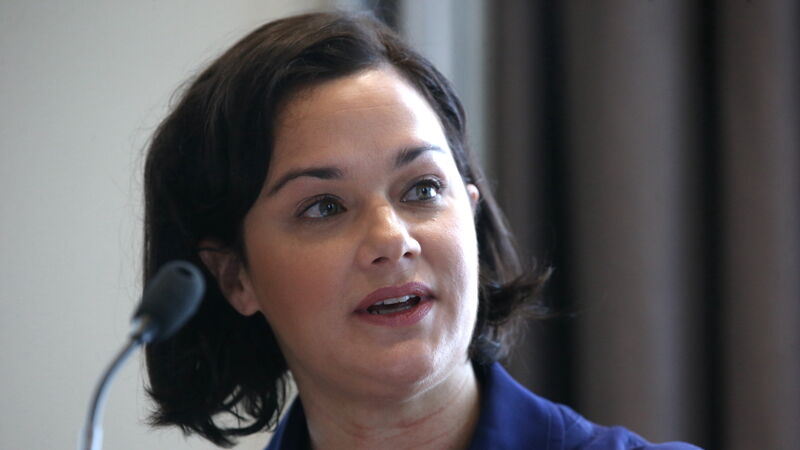One in four female doctors in IMO survey have been sexually harassed at work

Madeleine Ní Dhálaigh said gender inequality has a profoundly negative effect on the health system. 'How can we expect female doctors to work in our health system if they are being treated this way,' Dr Ní Dhálaigh asked the IMO conference. Picture: Stephen Collins/Collins
Almost one in four female doctors responding to a gender equality survey by the Irish Medical Organisation has been sexually harassed at work, and close to 60% of them have been bullied.
The survey also found 13.8% of male doctors have been sexually harassed at work, and a conference held in Dublin on Saturday called for urgent changes in how health sites are run.













